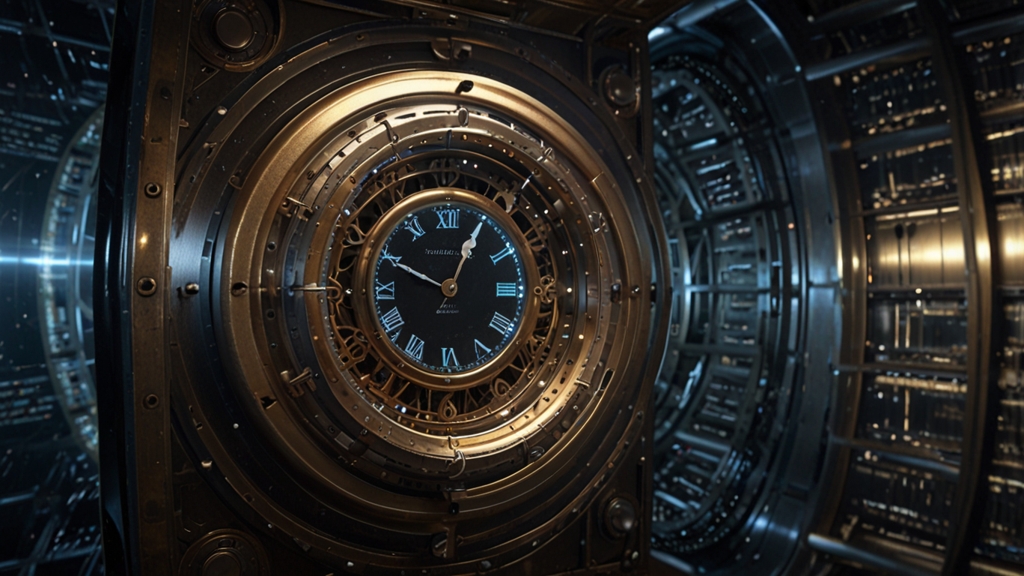Unraveling Time Travel: Is It Possible?
Time travel has long been a fascinating concept in science fiction, capturing the imagination of countless writers, filmmakers, and theorists. From H.G. Wells’ "The Time Machine" to the myriad of movies and TV series that explore this tantalizing concept, the idea of journeying through time has remained a popular subject. However, stepping beyond the realm of fiction, we must ask: is time travel scientifically possible?
The Theoretical Foundation: Einstein's Relativity
When discussing the potential for time travel, it's essential to start with Albert Einstein's theory of relativity, which fundamentally altered our understanding of time and space. According to Einstein's theory, time is not an absolute constant but rather a dimension that can be affected by speed and gravity.
"The distinction between the past, present, and future is only a stubbornly persistent illusion." - Albert Einstein
Einstein's theory of special relativity introduced the concept that time slows down or speeds up depending on how fast an object is moving relative to something else. This effect, known as time dilation, has been experimentally confirmed with highly accurate atomic clocks placed on fast-moving jets or satellites.
Wormholes: Gateways Through Time?
One of the most intriguing possibilities for time travel comes from the hypothetical constructs known as wormholes. These are essentially "shortcuts" through spacetime, connecting distant regions of the universe. A sufficiently advanced civilization could, in theory, use a wormhole to travel between two points in space, potentially creating a path for time travel as well.
The concept of a "traversable wormhole" was explored by physicists Kip Thorne and Michael Morris in the late 1980s. They proposed that if one end of the wormhole were moved at near-light speed and then brought back to its original position, a time difference between the two ends would be created. Traveling through the wormhole would then allow for time travel to either the future or the past.
"If there are wormholes in the universe, then maybe spacetime permits travelers to journey through them both forwards and backwards in time." - Kip Thorne
The Grandfather Paradox and Consistency Constraints
Even if the laws of physics permit time travel, a significant hurdle remains: paradoxes. The most well-known example is the Grandfather Paradox, wherein a time traveler goes back in time and inadvertently prevents their own existence by interfering with their grandfather's life. If the time traveler were never born, how could they go back in time to create the paradox in the first place?
Physicists have proposed various solutions to avoid such paradoxes. One possible solution is the "self-consistency principle," which suggests that events in the past occurred in a manner consistent with the existence of the time traveler. Simply put, any actions taken by the time traveler were always part of history, ensuring no contradictions arise.
Quantum Mechanics and Multiverse Theories
Quantum mechanics, the science of the very small, offers another potential pathway to understanding time travel. Some interpretations of quantum mechanics, such as the "Many-Worlds Interpretation," suggest that every quantum event branches into different outcomes, leading to potentially infinite parallel universes. This raises the possibility that time travel could mean moving between different branches of these parallel worlds, sidestepping paradoxes altogether.
"The universe is not only queerer than we suppose, but queerer than we can suppose." - J.B.S. Haldane
Conclusion: A Journey Through Science and Imagination
While the notion of time travel remains within the domain of theoretical physics and imaginative fiction, it continues to be a topic that pushes the boundaries of our understanding. Concepts like wormholes, time dilation, and quantum mechanics provide tantalizing glimpses into the possibilities, yet numerous hurdles and paradoxes remain unresolved.
As our scientific knowledge expands, who knows what the future may hold? For now, time travel remains an enthralling blend of science and fiction, pushing us to explore the very limits of the universe—and our imagination.







